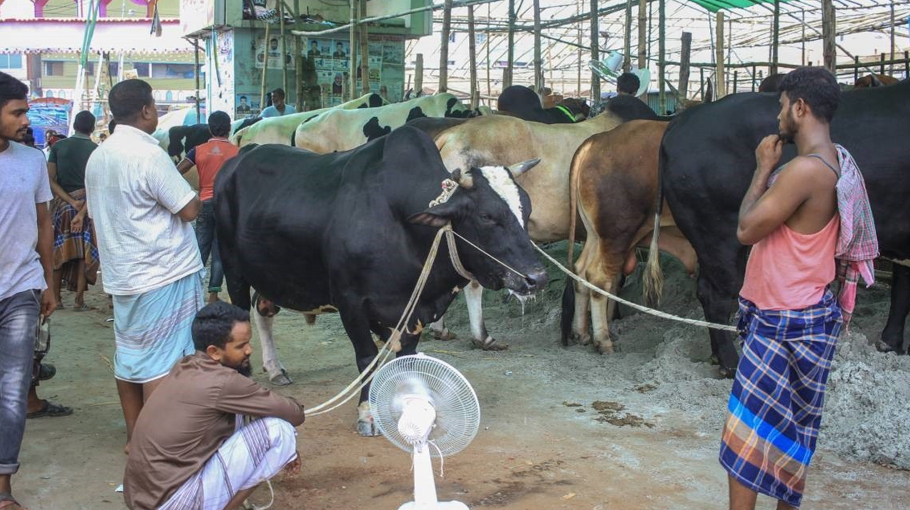Sacrificial cattle surplus in Cox’s Bazar, haats gain momentum

The demand for sacrificial animals in Cox's Bazar this year is 1 lakh 36 thousand 627. The district has a stock of 1 lakh 48 thousand cows at different farms and at individual level. As such, there is a surplus of more than 11,000 cows in the district. So the district animal resources officials claim there will be no animal crisis in the district for sacrifice. Even if there is a surplus of 10 million animals in the whole country, there will be no problem even if there are no cows from abroad. Rather indigenous farmers will benefit.
Eid-ul-Adha on July 10, subject to the sighting of the moon. And the main ingredient of Eid is cow. In the meantime, various speculations about cows have started in different quarters of the district. According to some, the demand for sacrifice with native cows will not be met.
According to some, the native farmers sit all year round for the time of sacrifice. Raising a cow all year round in the hope of gaining something at the time of sacrifice. Therefore, it is necessary to encourage local farmers not to bring cows from abroad. However, in many cases, buyers have to buy cows at several times higher prices for fear of a cow crisis.
But this time overcoming that fear, there will be no cattle crisis in Cox's Bazar, said Dr Jyertimoy Bhowmik, Animal Resources Officer of the district.
He said there is a demand of about 1 lakh 36 thousand animals in Cox's Bazar this year. But on the contrary, we have a stock of 1 lakh 46 thousand animals. As such, there is a surplus of about 11,000 animals. Besides, 55 cattle markets will be set up in the district this time, 26 medical teams will work to ensure safety.
Sadar Upazila Animal Resources Officer Dr Asim Baran Sen said farmers wait all year round in the hope of reaping some benefits. But in the past, due to the influx of more cows from abroad, the local farmers have repeatedly suffered losses. But this time the government has stopped importing cows from abroad with a high level decision so I think the local farmers will benefit a bit.
A local, Advocate Abu Haider Osmani said, "I think the sacrifice is once a year, so it would not be right to harm the local farmers by looking for something so cheap here. And now the price of everything in the country is increasing. I have heard from people in many villages that it costs a lot of money to raise a cow in the village.”
However, Manzur Alam, president of Ghonarpara Samaj Committee, also gave a different opinion. He said many poor or middle class people want to sacrifice one or two parts. Now if people buy a cow with lakhs of Tk, how will they share? At present, there are no good cows below 1 lakh Tk. Domestic cattle traders are not decreasing the prices. When cows came from abroad, the price of domestic cattle was also a little lower. People want the local farmers to benefit but they also have to keep in mind that if there is excess, the common people will suffer. For example, when the price of vegetables goes up in the market, the administration monitors the market but has never heard of setting the price of cattle or monitoring the market.
Sirajul Islam, a farmer from Ghatkuliapara in PMkhali Union, said, "I have six cows in my house, two of which I have been waiting for months to sell. We have to buy food at 3 times the price of cattle feed which was 6 months ago. In fact it is not true what people think local farmers or ranchers charge much more. As far as I know, those who are cattle traders do these things. For example, some traders have now seen my cow and wanted to buy it for a maximum of Tk 75,000. But I am sure they will sell these cows for at least 75 or 80 thousand Tk. So I will give it to the real buyer at a lower price but not to any trader.”
Meanwhile, several farmers have been told that if the government allows them to import cows from abroad, they will suffer heavily.



